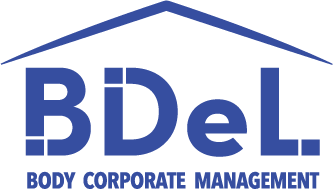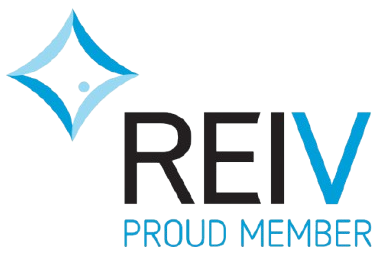FAQ'S
-
What is an Owner’s Corporation?
An Owners Corporation (formerly body corporate) manages the common property of a residential, commercial, retail, industrial or mixed-use property development. The common property is defined as any property not on title to any one particular owner include stairs, paths, elevators, lobbies, driveways, pools, common garden areas and other facilities set up for use by owners and occupiers.
An Owners Corporation may be created in any subdivision, residential, retail, commercial, industrial or mixed use. More than one Owners Corporation can be created in a subdivision of land or buildings.
-
Do I have to be part of the Owners Corporation?
If you own a property affected by an Owners Corporation then you become a member of that Owners Corporation automatically. As a member, you have legal and financial responsibilities to the Owners Corporation.
-
What are the responsibilities of an Owners Corporation?
An Owners Corporation must:
- manage and administer the common property
- repair and maintain the common property, fixtures and services
- take out and maintain required insurance
- raise fees from the lot owners to meet financial obligations
- prepare financial statements and keep financial records
- provide owners corporations certificates when requested
- keep an Owners Corporation register
- establish a grievance procedure.
It must also:
- carry out any functions and duties under the Owners Corporations Act 2006, the Owners Corporations Regulations 2007, the Owners Corporation rules and any other law or regulation
- ensure compliance with Owners Corporations
Act 2006, the Owners Corporations Regulations and rules.
-
What regulates an Owners Corporation in Victoria?
The Owners Corporations Act 2006 and the Owners Corporations Regulations 2007 regulate Owners Corporations in Victoria.
-
What is an Owners Corporation Manager?
An Owners Corporation manager is a specialist that deals in the running of an Owners Corporation. Many Owners Corporations use professional managers to assist with finances, insurance, administration, meetings and maintenance functions. Larger Owners Corporations usually engage paid professional managers because complex legal, technical and people skills are required to manage the property.
An Owners Corporation may appoint a manager to carry out any powers or functions it is able to delegate at a general meeting. The Owners Corporation usually delegates powers to a manager in a contract or instrument of delegation. This enables the manager to make decisions on behalf of the Owners Corporation.
-
What are some of the duties of the Owners Corporation Manager?
Duties include but are not limited to:
- managing the financial accounts of the Body Corporate;
- looking after insurance matters – claims and renewals, and Owner’s queries;
- managing the correspondence with Owners, contractors, and other 3rd parties;
- drawing up proposed new budgets each financial year;
- calling the AGM, and sending out related Notices, Nominations etc;
- holding of the AGM, and issuing the Minutes following the meeting;
- setting up the new budgets adopted at the AGM, and the resulting Levies;
- attending to the issuance of Disclosure Statements for Owners selling their Lot;
- attending to the calling of any EGM;
- managing Committee issues, including calling of Committee Meetings and issuing Minutes of those meetings;
- advising any Owner on matters of Body Corporate law and procedure and;
- managing any dispute and resolutions that may arise.
-
Why it is recommended to use a professional Owners Corporation (Body Corporate Strata Manager)?
- Though members ‘self management’ is an option, the appointment of a professional management company is highly recommended to ensure that the respective owners corporations are being administered in accordance with the rulings and regulations imposed by the Act and its Regulations as amended.
- Owners should note also that ‘Standard Rules’ or ‘Additional Rules’ (depending on what has been registered on the Plan of Subdivision) also may apply within the confines of a development and are applicable to all residents, i.e. owners and tenants. An Owners Corporation agent, being an impartial body, is in a position to enforce these rules ensuring little or no disharmony amongst occupants.
-
What are the four levels of an Owners Corporation?
The Owners Corporation operates at four levels:
- The Owners Corporation consisting of all the lot owners.
- The committee consisting of elected lot owners or lot owners’ proxies.
- A delegate of the Owners Corporation. For example: the chairperson, the secretary, a committee
- member, a lot owner, or an employee of the Owners Corporation.
The Owners Corporation (all the lot owners):
- keeps control of all decision-making
- can delegate powers, but only for matters that do not require a unanimous or special resolution or that are required to be dealt with
- can overturn an earlier decision of the Owners Corporation. Only the Owners Corporation can do this
- can appoint sub-committees to advise the Owners Corporation. Sub-committees cannot make decisions.
The committee:
- can make decisions on all matters delegated to it by the Owners Corporation except on matters that the Owners Corporation has determined must be decided at a general meeting.
A delegate:
- the committee may delegate certain powers to a lot owner, a manager or sub delegate to a member of the committee.
- can make decisions within the limits set by the Owners Corporation
- cannot overturn a decision of the Owners Corporation or the committee.
-
Where can I go to get more information?
- Consumer Affairs Victoria – Owners Corporations
- VCAT – Victorian Civil & Administrative Tribunal
- Strata Community Australia (VIC)
- Download the Owner’s Corporation Act. Click here
-
Guide to owning, managing and living in an owners corporation
Click the following link
- What is an Owner’s Corporation?
An Owners Corporation (formerly body corporate) manages the common property of a residential, commercial, retail, industrial or mixed-use property development. The common property is defined as any property not on title to any one particular owner include stairs, paths, elevators, lobbies, driveways, pools, common garden areas and other facilities set up for use by owners and occupiers.
An Owners Corporation may be created in any subdivision, residential, retail, commercial, industrial or mixed use. More than one Owners Corporation can be created in a subdivision of land or buildings.
- Do I have to be part of the Owners Corporation?
If you own property affected by an Owners Corporation then you become a member of that Owners Corporation automatically. As a member, you have legal and financial responsibilities to the Owners Corporation.
- What are the responsibilities of an Owners Corporation?
An Owners Corporation must:
- manage and administer the common property
- repair and maintain the common property, fixtures and services
- take out and maintain required insurance
- raise fees from the lot owners to meet financial obligations
- prepare financial statements and keep financial records
- provide owners corporations certificates when requested
- keep an Owners Corporation register
- establish a grievance procedure.
It must also:
- carry out any functions and duties under the Owners Corporations Act 2006, the Owners Corporations Regulations 2007, the Owners Corporation rules and any other law or regulation
- ensure compliance with Owners Corporations
Act 2006, the Owners Corporations Regulations and rules.
- What regulates an Owners Corporation in Victoria?
The Owners Corporations Act 2006 and the Owners Corporations Regulations 2007 regulate Owners Corporations in Victoria.
- What is an Owners Corporation Manager?
An Owners Corporation manager is a specialist that deals in the running of an Owners Corporation. Many Owners Corporations use professional managers to assist with finances, insurance, administration, meetings and maintenance functions. Larger Owners Corporations usually engage paid professional managers because complex legal, technical and people skills are required to manage the property.
An Owners Corporation may appoint a manager to carry out any powers or functions it is able to delegate at a general meeting. The Owners Corporation usually delegates powers to a manager in a contract or instrument of delegation. This enables the manager to make decisions on behalf of the Owners Corporation.
- What are some of the duties of the Owners Corporation Manager?
Duties include but are not limited to:
- managing the financial accounts of the Body Corporate;
- looking after insurance matters – claims and renewals, and Owner’s queries;
- managing the correspondence with Owners, contractors, and other 3rd parties;
- drawing up proposed new budgets each financial year;
- calling the AGM, and sending out related Notices, Nominations etc;
- holding of the AGM, and issuing the Minutes following the meeting;
- setting up the new budgets adopted at the AGM, and the resulting Levies;
- attending to the issuance of Disclosure Statements for Owners selling their Lot;
- attending to the calling of any EGM;
- managing Committee issues, including calling of Committee Meetings and issuing Minutes of those meetings;
- advising any Owner on matters of Body Corporate law and procedure and;
- managing any dispute and resolutions that may arise.
- Why it is recommended to use a professional Owners Corporation (Body Corporate Strata Manager)?
- Though members ‘self management’ is an option, the appointment of a professional management company is highly recommended to ensure that the respective owners corporations are being administered in accordance with the rulings and regulations imposed by the Act and its Regulations as amended.
- Owners should note also that ‘Standard Rules’ or ‘Additional Rules’ (depending on what has been registered on the Plan of Subdivision) also may apply within the confines of a development and are applicable to all residents, i.e. owners and tenants. An Owners Corporation agent, being an impartial body, is in a position to enforce these rules ensuring little or no disharmony amongst occupants.
- What are the four levels of an Owners Corporation?
The Owners Corporation operates at four levels:
- The Owners Corporation consisting of all the lot owners.
- The committee consisting of elected lot owners or lot owners’ proxies.
- A delegate of the Owners Corporation. For example: the chairperson, the secretary, a committee
- member, a lot owner, or an employee of the Owners Corporation.
- A delegate of the committee. The committee may delegate to a lot owner, a manager or sub delegate to a member of the committee.
The Owners Corporation (all the lot owners):
- keeps control of all decision-making
- can delegate powers, but only for matters that do not require a unanimous or special resolution or that are required to be dealt with
- can overturn an earlier decision of the Owners Corporation. Only the Owners Corporation can do this
- can appoint sub-committees to advise the Owners Corporation. Sub-committees cannot make decisions.
The committee:
- can make decisions on all matters delegated to it by the Owners Corporation except on matters that the Owners Corporation has determined must be decided at a general meeting.
A delegate:
- can make decisions within the limits set by the Owners Corporation
- cannot overturn a decision of the Owners Corporation or the committee.
- Where can I go to get more information?
- Consumer Affairs Victoria – Owners Corporations
- VCAT – Victorian Civil & Administrative Tribunal
- Strata Community Australia (VIC)
- Download the Owner’s Corporation Act. Click here

